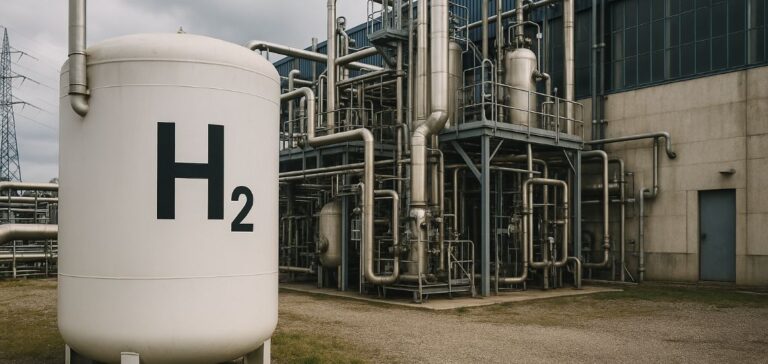The French government may present a new version of its hydrogen strategy on Thursday, according to a source close to the executive. This announcement comes amid stagnation in the sector, marked by insufficient demand and production costs that remain too high. The anticipated revision of the roadmap aims to address gaps in the regulatory framework and to adjust support mechanisms in order to revive industrial momentum.
A regulatory framework launched in 2020
The initial national strategy, introduced in 2020, was backed by €9bn in funding, partly from the France 2030 plan and supported by European funds. It aimed to structure a national hydrogen industry by focusing on electrolysis. This process, which allows hydrogen to be produced from water without emitting carbon dioxide, was intended to help decarbonise heavy industry. Several companies such as McPhy, Elogen, and Genvia entered the electrolyser manufacturing sector, but the lack of concrete projects is now limiting the industry’s growth.
Lack of clarity in implementation rules
Despite the original ambitions, the sector faces regulatory obstacles that hinder the development of production and applications. Industry stakeholders report persistent uncertainties regarding the allocation criteria for subsidies and compliance requirements for projects. Many investments are currently on hold pending clarification of rules and a precise timeline for support schemes.
Strong expectations from industry stakeholders
Players in the sector, particularly in transport, are calling for significant adjustments. Philippe Boucly, President of France Hydrogène, warned in January of the absence of institutional progress throughout 2024, noting that production support and strategy revision were still pending. Prime Minister François Bayrou is set to chair an interministerial innovation committee at the Centre Pompidou in Paris on Thursday, with hydrogen listed on the agenda. Industry stakeholders hope this meeting will result in concrete measures and a redefinition of the regulatory framework to secure ongoing projects and enable new developments.






















